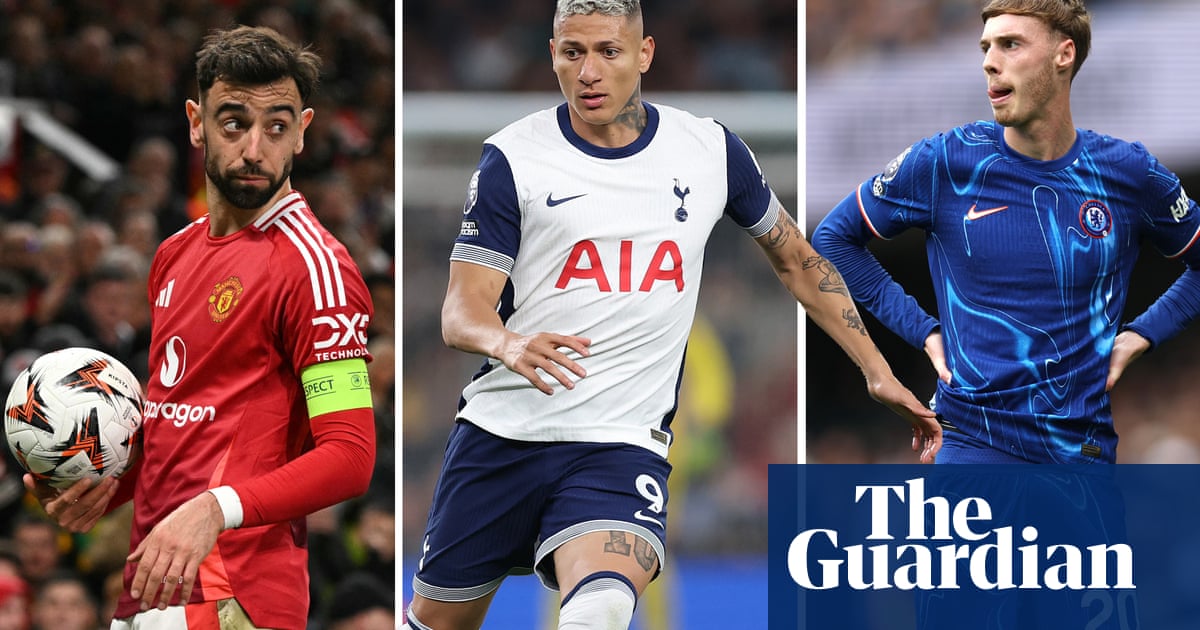Those of a Liverpool persuasion, do look away now. That’s if you’ve sobered up from last Sunday, but even if you’ve had your fun this may annoy: there’s a thought this has been an unsatisfying Premier League season.Brentford’s beating of Nottingham Foreston Thursday night further dulled the romance. It looks as if the Tricky Trees will not now be in Bigger Cup, much to the chagrin of edit producers who had already started working on that Cloughie montage. With zero relegation battle there’s only Manchester City’s fall from grace to, er, fourth to gawp at. Thank goodness for the continent, then, where the Premier League’s brave boys can remind those Eurocrats that ours is the best bloody league in the world. It’s going well, actually, though there is something of a bullies turning up at junior school vibe to such success. That’s to set aside Arsenal, hanging on in Bigger Cup’s semis, a goal down despite the fear North London Forever must have put into PSG at the Emirates.
The real quiz comes in those tournaments where appeal is more selective. Bigger Vase, a repechage of those not good enough for the top tier, offered double helpings of patriotic pride. In north London, in the first leg, billionaire-owned Tottenham faced hipster’s favourites Bodø/Glimt, the Arctic Circle community club who sound like a post-rock outfit on the Thrill Jockey label or a piece of Scandi self-assembly furniture,and won 3-1. Such is the pessimism that surrounds Spurs that much of the focus went on Ulrik Saltnes’s late goal, and the plastic pitch greeting them next week in far-northern Norway. “Look, it is on artificial grass but it’s still a game of football,”roared Ange Postecoglou.
Hurrah also then for Manchester United, football’s grandest crisis club, owned by two separate billionaire factions, for crushing Basque Country jewel Athletic Club, a team collated bycantera –homespun talent –rather than hoofing cash on windy flops,3-0 in their own stadium. Beaten-down Reds were wiping their eyes in disbelief that Ruben Amorim’s team played so well. Where did that come from? Big Red seem to have developed a welcome habit of getting an opponent sent off. This time, it was Athletic’s Dani Vivian, dismissed for hauling back Rasmus Højlund in the style of a slapstick early-1980s yoof comedy.
To complete the matchbox of England’s glory, Chelsea, also owned by billionaires – of the venture capitalist variety –beat Djurgården 4-1 in Stockholm. A plastic pitch proved no issue for Enzo Maresca’s entertainers as they walloped a team where the fans come first, just the type of minnows that Tin Pot is supposed to bring the best from, like a Scania artic rolling over roadkill.Well done, he’s 13.
Join Taha Hashim at 8pm (BST) for Manchester City 0-0 Wolves in the Premier League.
Send letters tothe.boss@theguardian.com.Today’s prizeless letter o’ the day winner is … Louis Beasley-Suffolk. Terms and conditions for our competitions, when we run them, can be viewedhere.
This is an extract from our daily football email … Football Daily. To get the full version,just visit this page and follow the instructions.
